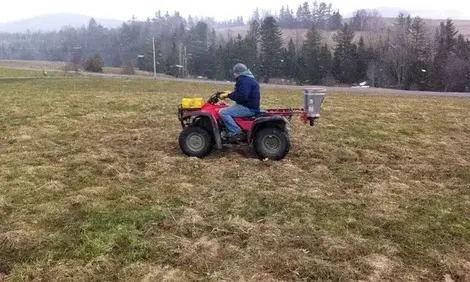



Research reveals almost 9 in 10 UK farmers have a succession plan in place for their farm
92% of UK farmers expect the next generation of their family to take over the running of their farmSuccession planning is crucial for UK farmers to ensure the continuity and sustainability of their agricultural businesses, according to new research* from wealth manager Investec Wealth & Investment (UK) with 100 freehold farmers across the UK. The findings reveal that four in five (78%) UK farmers surveyed have had a formal valuation assessment of their farm undertaken in the past five years and that the majority (88%) confirm that they have a robust plan in place for the future succession of their farm, fewer than one in 10 (9%) say they have no such plan in place.
Farming is often a multi-generational enterprise that is deeply rooted in family traditions and values. This is underlined by the findings that 92% of UK farmers interviewed say that once the current generation has stepped back from running the farm, they expect that the next family generation will take over and run the business. Almost all (98%) of UK farmers surveyed said they are confident that the next generation wants to run the family-owned farm, and 93% believe that their children or other family members will be capable of doing so successfully. Nearly all (99%) of respondents agree harmony exists between the different family generations running the farm, with 23% describing the level of agreement as “excellent” and 60% describing it as “good”.
The research by Investec Wealth & Investment (UK), which helps clients reach their financial goals and navigate life’s journey through financial planning and investment management services, revealed that three in five (59%) of the UK farmers interviewed currently employ two or more other family members, excluding themselves; 18% employ three or more. Just 8% said they were the only member of their family currently employed in the running of their farm. The average number of people employed by each freehold farmer interviewed was 21, with almost a half (49%) saying they employed between 20 and 30 people in the running of their farm.
Four in five (81%) UK farmers interviewed anticipate that the current generation running the farm will retire aged 65 years or younger, with most (73%) retiring between 60 and 65 years of age and just 8% saying they expect them to retire before they reach their 60th birthday. However, 14% believe that the current generation will work beyond 65 and will be involved in the farm business up until 70 years of age, with another 2% saying they will retire aged 70 – 75 and 3% admitting that they don’t envisage ever retiring.
The nature of agricultural work often blurs the boundaries between home and farm, with family members frequently involved in various aspects of farm operations. However, despite long hours and unpredictable schedules, the majority of UK farmers are positive about their own family and work life balance, with 73% describing it as “good” and 9% describing it as “excellent. Only 1% describe it as being “very poor”.
The research indicates that labour market has become more favourable for some but not all UK farmers with 45% saying that it had become easier to find suitable employees over the past two years, this contrasts with nearly three in 10 (29%) who say that they had found it harder or significantly harder to find staff. A quarter (26%) said recruitment of suitable labour remained about the same compared to two years ago.
Scott Jones, Divisional Director - Southern Offices at Investec Wealth & Investment (UK), said: “Our findings have highlighted that farming is not just a source of income but often a deeply ingrained family legacy that will be passed down to the next generation. By establishing succession plans, farmers can seamlessly transfer ownership and management responsibilities to their children or other family members, helping to preserve the knowledge and expertise that was cultivated over years of hard work.
“The process involves careful consideration of factors such as the financial stability of the farm, the skills and aspirations of family members and potential tax implications. Robust succession planning brings stability not just for the family but also for the local community and the wider agricultural sector, ensuring support for rural economies and the long-term viability of food supply chains.
James Gower, Managing Director of The Game Fair, commented: “The findings from the research highlight key factors affecting the farming community which is an important part of the future of our countryside. Our partnership with Investec Wealth & Investment (UK) is at the heart of our drive to create the perfect opportunity at The Game Fair for farmers to come together to share values, discuss the latest topics and find solutions to the challenges they face.”
Investec Wealth & Investment (UK), is for the third year running, the official Wealth Management Partner for The Game Fair. This is the UK’s largest countryside show taking place at Blenheim Palace from 26 th to 28 th July 2024. The partnership enables Investec Wealth & Investment (UK) to further strengthen its commitment to supporting rural and farming communities across the UK, along with innovators who are finding new ways to help protect and preserve our landscapes for future generations.



